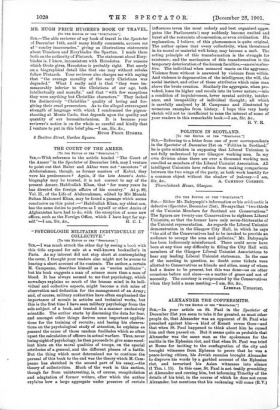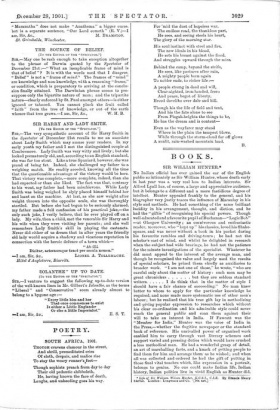ALEXANDER THE COPPERSMITH.
[To not EDITOR OF THE "SPECTATOR."]
SIR,—In your article on St. Paul in the Spectator of December 21st you seem to take it for granted, as most other people do, that Alexander was an opponent of St. Paul who preached against him—a kind of Kensit versus Gore—and that when St. Paul happened to think about him he cursed him and then passed on. But it seems quite as probable that Alexander was the same man as the spokesman for the smiths in the Ephesian riot, and that when St. Paul was tried at Rome for inciting to the conflagration of the city and brought witnesses from Ephesus to prove that he was a peace-loving citizen, his Jewish enemies brought Alexander to disprove his words by a garbled account of the Ephesian riot, and terrorised his Asian witnesses into silence (1 Tim. i. 15). In this case, St. Paul is not testily grumbling at Alexander and cursing him, but informing Timothy of the details of his trial, in the course of which be does not curse Alexander. but mentions that his reckoning will come (R.V.)
" Maranatha" does not make "Anathema" a bigger curse, but- is a separate sentence, "Our Lord cometh" (R. V.)—I



































 Previous page
Previous page